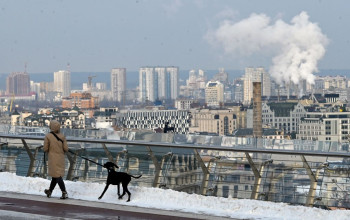Russia’s efforts to reorganize its defense industry and the abrupt appointment of a new commander to oversee the war in Ukraine show that Moscow is preparing for “a long-term war,” Ukraine’s intelligence said on Jan. 14.
In a Telegram post, the Defense Ministry's Intelligence Directorate reported that Russia appears to be recognizing its economy and the military-industrial complex for mass weapon production and is preparing a possible introduction of martial law in the future.
While Moscow began what it calls “a partial mobilization” in September, it has not yet declared martial law in Russia.
Additionally, after facing humiliating battlefield setbacks, the Kremlin reshuffled its top military commander in a span of three months, likely meaning that Russia is preparing “for the continuation of a large-scale, long-term war,” according to Ukraine’s intelligence.
Earlier on Jan. 12, the Russian Defense Ministry said in a statement that Chief of the General Staff Valery Gerasimov was to replace Sergei Surovikin as the new military commander for Russia's war against Ukraine.
The sudden reshuffle of Russia’s most senior battlefield general position reveals that Russia clearly acknowledges that “the campaign is falling short of Russia’s strategic goals,” the U.K. Defense Ministry said in its intelligence briefing released after the announcement.
Early in the full-scale invasion, Russia appeared ready to end the war at a blitzkrieg speed, with an overly ambitious goal to capture Kyiv in a few days.
While Russian forces occupied the northern outskirts of Kyiv shortly after launching the invasion, they were forced to retreat from their captured territories in late March. Since then, Russia’s battlefield achievements remained limited, even as fierce battles raged in Ukraine’s east and south.
Ukraine has liberated about 40% of territories Russia occupied since the February invasion, Commander-in-Chief Valerii Zaluzhnyi said on Jan. 2.
Despite stalled war efforts, Kremlin spokesman Dmitry Peskov said in December that Russia was determined to capture four partially occupied regions in Ukraine that it claims to have illegally annexed – which include Donetsk, Luhansk, Kherson, and Zaporizhzhia oblasts.










